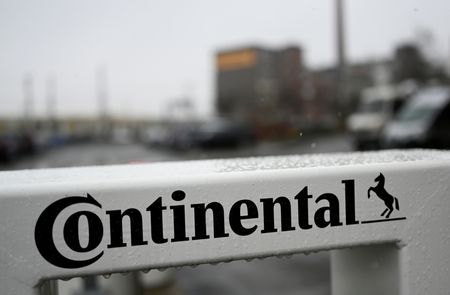By Francesco Canepa
FRANKFURT (Reuters) -France’s political standoff shows how European governments, caught between the demands of their ageing electorates and the need to keep spending in check, keep struggling to fix the pension-shaped holes in their budgets.
The right to a pension has been a central plank of the European social contract for decades. But longer life spans and fewer births mean most governments can’t afford to have people retiring on a full pension in their early 60s, as was once the norm.
Selling this fact to voters and getting the buy-in from parliaments has been supremely difficult, however, as numerous mass protests and coalition rows have shown over the years.
France provided the latest and perhaps most extreme example this week, when the government was forced to delay plans to raise one of the lowest retirement ages in the European Union, currently set at just 62 years old.
But the list is long, with initiatives to increase the pension age or cap benefits failing or even being reversed in neighbouring Germany, Spain and Italy, among other countries.
The reason is simple: With the median European voter now in their mid-40s, governments have too much to lose if they penalise the older generation in favour of the young — even if that means simply postponing the day of reckoning.
Javier Díaz-Giménez, an economics professor at IESE Business School who specialises in savings and pensions, described this as “a demographic capture of democracies” in an interview.
“Old people will always…completely block any reform that does not guarantee that they’re going to receive whatever pension was promised to them,” he said.
It can be done, however, as the Dutch have shown with carefully crafted and hard-won legislation.
REFORM USUALLY ONLY PASSED UNDER DURESS
Where pension reforms were implemented, such as in Greece, Portugal, Italy and Spain in the last decade or in Sweden in the 1990s, it was often under extreme duress from financial markets or international lenders.
In an illustration of the emotional charge behind such reforms, Italian labour minister Elsa Fornero was reduced to tears in 2011 as she raised the minimum retirement age and scrapped annual inflation adjustments for many pensions.
Today, Fornero says she had no choice given a spiralling selloff on Italian government bonds, part of a broader debt crisis that almost brought down the euro.
“It’s like asking a firefighter if they are sorry for damaging something with the water they used to put out a fire,” she told Reuters. “We didn’t carry out the reform to punish anyone but because the financial world on which Italy depended wanted to see serious and immediate reform.”
Indeed, an academic study of major pension reforms in the EU between 2006 and 2015 found that governments tend to find the courage to overhaul their pension systems only when they come under market pressure.
This may still be lacking in France, where the government is paying a modest 80 basis-point premium over safe-haven Germany to borrow on the bond market. Italy was paying some 500 basis points at the height of the euro crisis.
“If the market pressure is small in France, we can expect a less incisive reform,” Mattia Guidi, a professor at the University of Siena who co-authored the study, said in an interview.
WATERING DOWN – THE NEXT THREAT
Crisis-era pension reforms in Greece, Italy, Portugal and Spain have been credited with putting their countries’ public finances on a more sustainable path.
Even that is no guarantee that the reforms will survive, however, or at least not in full.
Italy and Spain have suspended or watered down parts of their respective reforms in successive steps after the crisis was over.
Even Portugal and Greece, which slashed pension entitlements in return for bailouts last decade, have since increased benefits and are considering further hikes.
For Joao Silva, co-editor of a report on pensions for non-profit organisation the European Youth Parliament, this was inevitable as the reforms were pushed through despite the electorate’s opposition rather than with its backing.
“If you can’t build a large consensus on a political and economic formula, it is simply not going to stick,” Silva said.
Reform momentum has also waned in Germany, Ireland and Britain, which has not dared touch the generosity of its so-called triple lock mechanism for calculating increases in the value of the pensions.
Fornero, the former Italian minister, also stressed the need for building popular support, arguing that French President Emmanuel Macron should have done a better job at convincing his own electorate that a change was needed.
“Macron has lost touch with his citizens,” she said. “An increase of only two years…would have been acceptable if explained well. But the reform has become a scapegoat.”
Some countries, however, seem to have found a way through.
A Dutch reform to switch to a defined contribution scheme, which does not offer a guaranteed payout and instead depends on the size of the pot an employee builds up over their career, was approved with broad support after a decade of negotiations.
A major financial crisis jolted Sweden into passing a similar reform in the 1990s. While unpopular at the time, the change is now looked back on as having been vital for the country’s economic well-being.
(Additional reporting by Giselda Vagnoni and Giuseppe Fonte in Rome; Charlie Devereux in Madrid; Leftheris Papadimas in Athens; Toby Sterling in Amsterdam; Bill Schomberg in London; Gergely Szakacs in Budapest and Simon Johnson in Stockholm; Editing by Mark John and Hugh Lawson)











